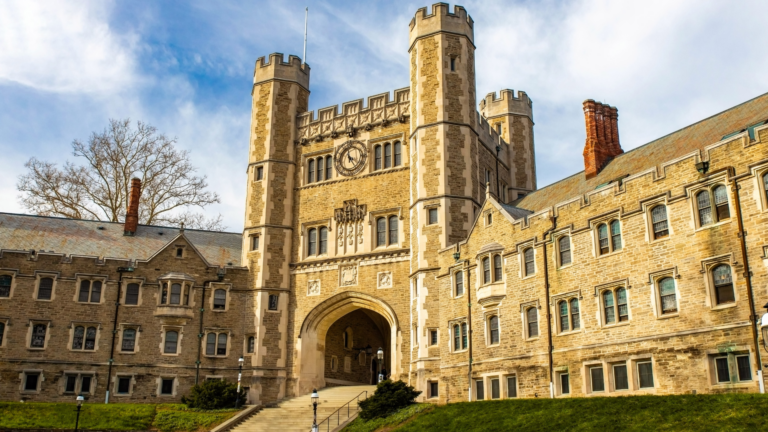2022-23 College Application Changes: Admissions Trends to Know
With the arrival of a new college application cycle comes new protocols, policies, and regulations that will affect the way a lot of students plan their school lists, essay writing, and testing decisions. The 2022-23 college application changes include new additions to the Common App, the introduction of new supplemental essays at top colleges, new early admissions policies, and more. In this blog, I’ve outlined the most noteworthy changes alongside trends that these might result in as the season progresses.
2022-23 College Application Changes
New Additions to the Common Application Including Texas Colleges
The Common Application is the largest college application system, currently allowing candidates to apply to over 1,000 colleges and universities. Previously, some notable exceptions from schools included in the Common App were colleges in Texas, such as UT Austin, Texas State, and Texas A&M. Students still can use ApplyTexas. The advantage here would be that if they only apply to multiple colleges in Texas, they’ll only have to write one of the three ApplyTexas prompts which has a word limit of 1200-1500 words rather than 650. Plus, you can enter more activities in ApplyTexas than you are in the Common App. You are able to submit up to 10 extracurriculars, but these do not include community service/volunteering or job experiences. ApplyTexas splits extracurricular activities from community service, allowing you to describe up to 8 community service activities, and has 8 slots for you to enter honors, awards, and talents – which is more than the Common App honors section.
This year, all of these colleges and more are available to apply to through the Common App. Check out the full list of new Common App members on their official website.
University of Southern California (USC) Introduces Early Action
One of the most notable 2022-23 college application changes is the introduction of USC’s early action policy. The University of Southern California is a top choice for many students, particularly creative ones. Regardless of where your interests lie, if you have your eyes on becoming a Trojan, I have good news for you! USC has just introduced an early action policy.
Early action is a nonbinding admissions process for students to apply to college earlier than the regular deadline, usually in November of senior year. Students receive admissions notifications in December, and if accepted, are not required to commit. What this means is that you can apply to USC and choose whether you want to attend or not once you’re admitted. Moreover, you don’t have to let the school know until May when you have received all of your other admissions decisions.
Changes to Many Supplemental Essays, Including NYU, Columbia, UPenn
Some schools, such as NYU, were previously known for their classic “why school” supplemental essay. However, another of the 2022-23 college application changes includes the omission of the “why NYU” question and the introduction of this new optional prompt:
NYU was founded on the belief that a student’s identity should not dictate the ability for them to access higher education. That sense of opportunity for all students, of all backgrounds, remains a part of who we are today and a critical part of what makes us a world class university. Our community embraces diversity, in all its forms, as a cornerstone of the NYU experience.
We would like to better understand how your experiences would help us to shape and grow our diverse community. Please respond in 250 words or less.
There have been new added prompts on top of preexisting questions to the following top schools as well:
Columbia:
In Columbia’s admissions process, we value who you are as a unique individual, distinct from your goals and achievements. In the last words of this writing supplement, we would like you to reflect on a source of happiness. Help us get to know you further by describing the first thing that comes to mind when you consider what simply brings you joy. (35 words or fewer)
University of Pennsylvania:
Write a short thank-you note to someone you have not yet thanked and would like to acknowledge. (We encourage you to share this note with that person, if possible, and reflect on the experience!) (150-200 words)
University of California to Reduce Spots
One of the 2022-23 college application changes that will have significant impact on how students are admitted is the news that the University of California campuses are reducing the number of out-of-state spots that they would usually have reserved. Last summer, lawmakers approved the UC schools to enroll an extra nearly 11,000 California residents, in part by removing 4,500 out-of-state slots over five years. It’ll be interesting to see how things play out as a result of this new rule.
Both international students and students who do not live in California now have a significantly lower chance of being admitted to the UCs. Despite reduced spots, however, the UC’s test blind policy will mean that the number of applications will continue to be high. Last year the UCs received the highest number of applications for fall 2022 across all campuses than they ever had and we expect to see a similar number this year. For InGenius Prep students in 2021-2022, we saw significantly fewer students admitted to UCs in general than we have in previous years, confirming that the schools have gotten more competitive. There are no longer things such as targets and safeties. Nobody’s admission is guaranteed. Students who would have been admitted to UC Santa Barbara, San Diego, Irvine, and Davis in the past might not have gotten as many acceptances this year because the UCs seem more focused on yield. Notably, UC Irvine waitlisted a lot of students and seems to be leveraging the waitlist more for filling actual seats—the waitlist was already moving at UCI by end of March!
Test Optional Continues
A significant portion of top universities and colleges will remain test optional for the 2022-23 cycle, as introduced by most institutions after the pandemic struck. You can find a full list of test optional colleges here.
You might wonder how this will affect the application evaluation process. According to one of our Former Admissions Officers from a top 10 university:
“With test optional policies in place, I am looking even more strongly for evidence that the student can do the work, especially at highly competitive schools. So grades and APs take on a bigger weight, since readers will likely be mentally projecting what it looks like an SAT/ACT score would be. And any demonstration that you can do college-level work will also help. APs in school or summer or online courses for college credits for example. Though I don’t recommend taking APs in addition to what your school offers (often there is too much of a break between the course and the test, and AP tests are at a busy time when time is tight due to finals and prep for APs offered by your school). College credit via other methods also means that you can take courses that are more interesting and distinctive.”
Schools that AREN’T Test Optional
On the flip side of the previous section, at some schools, SAT and ACT scores are still mandatory. This list of schools includes:
- Massachusetts Institute of Technology
- Georgetown University
- United States Military Academy
- Georgia Institute of Technology
- University of Florida
- Florida State University
Changes To Personal Descriptors in the Common App
Finally, the 2022-23 college admissions changes in the Common Application includes more flexibility in students’ personal descriptors. All applicants will have more options to choose from when answering questions pertaining to gender and sexuality.
For example, the Common App has added the gender-neutral options of “Mx.” and “other. Students can also add a name they wish to be called alongside their “legal” name. Students can select “other” pronouns and mention what their pronouns are and click “other” for gender and define their gender however they like.
Trends to Watch Out for as a Result
Based on the 2022-23 college application changes, such as test optional policies and new supplemental essay questions, we expect the number of college applications to continue to increase just like it has for the past few cycles. A lot more students might apply without an SAT or ACT score. As a result, AP exams and essays will play a more significant role in admissions decisions.
Last year we saw the competition being much more fierce in the regular decision than the early decision. InGenius Prep students were twice as likely to be admitted to Brown early decision than regular decision, three times more likely to be admitted to UPenn early decision than regular decision, and four times more likely to be admitted to Duke early versus regular. University of Chicago is estimated to have recruited 90% of their class through early decision 1 or early decision 2. If students are hoping for one of these schools, they really shouldn’t miss the chance to apply early decision.
The number of students admitted from the waitlist rose 97% from 22,223 in 2019 to 43,867 in 2020. We can expect a continued increase in students waitlisted by top colleges as well as the possibility of more students admitted off the waitlists.
After a fall in international students who were able to attend college post-pandemic in the 2020-21 cycle, the past cycle saw international enrollment bounce back in 2021-22, with a reported 63% increase from the prior year.


